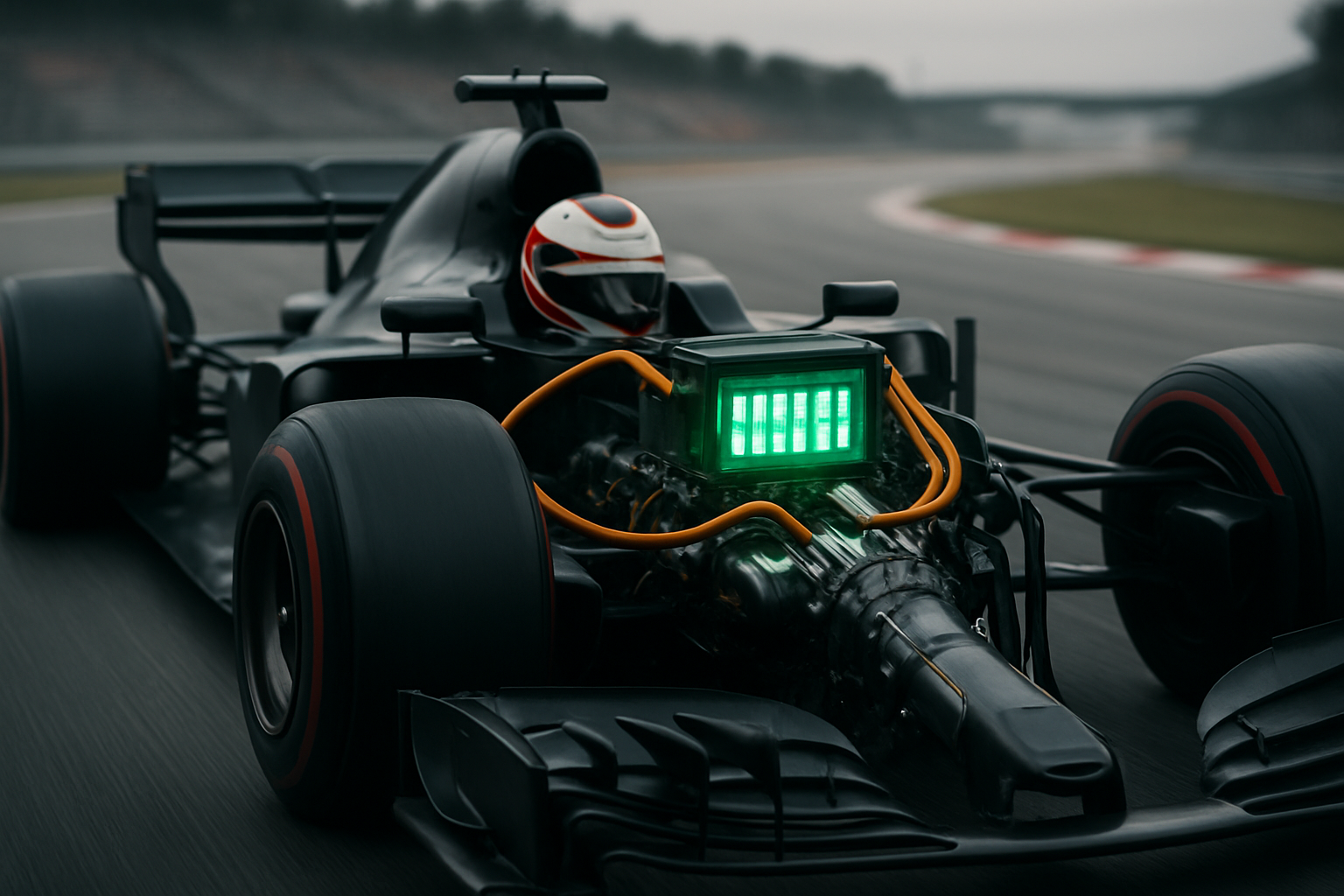Exploring the World of Synthetic Fuels in Motorsports
The roar of engines, the smell of burning rubber, and the thrill of high-speed competition have long defined motorsports. But behind the excitement lies a constant drive for innovation, particularly in fuel technology. As environmental concerns mount and traditional fossil fuels face scrutiny, synthetic fuels are emerging as a potential game-changer in the racing world. This cutting-edge technology promises to maintain the heart-pounding performance fans love while addressing the need for more sustainable practices.

The Science Behind Synthetic Fuels
Synthetic fuels, also known as synfuels, are liquid fuels produced through chemical processes rather than the traditional refining of petroleum. These fuels can be created from a variety of feedstocks, including natural gas, coal, biomass, or even carbon dioxide captured from the atmosphere. The production process typically involves converting these raw materials into a mixture of carbon monoxide and hydrogen, known as syngas, which is then further processed into liquid hydrocarbons.
One of the most promising methods for creating synthetic fuels for motorsports is the Power-to-Liquid (PtL) process. This technique uses renewable electricity to split water into hydrogen and oxygen through electrolysis. The hydrogen is then combined with carbon dioxide, often captured from industrial processes or directly from the air, to create synthetic crude oil. This oil can be refined into various fuel products, including those suitable for high-performance racing engines.
The Environmental Proposition
The appeal of synthetic fuels in motorsports lies in their potential for carbon neutrality. While these fuels still produce CO2 when burned, the carbon used in their production can be captured from the atmosphere, creating a closed carbon cycle. This means that, in theory, using synthetic fuels could allow racing to continue with its current high-performance engines without contributing to net carbon emissions.
Moreover, synthetic fuels can be designed to burn more cleanly than traditional fossil fuels, potentially reducing other harmful emissions such as particulate matter and nitrogen oxides. This cleaner burn could have implications not just for environmental impact, but also for engine longevity and performance consistency over long races.
Performance and Compatibility
One of the most significant advantages of synthetic fuels is their potential for seamless integration into existing motorsport infrastructures. Unlike the shift to electric vehicles, which requires substantial changes to vehicle design and race formats, synthetic fuels can be used in current internal combustion engines with minimal modifications.
Racing teams and engine manufacturers are particularly interested in the ability to fine-tune synthetic fuels for optimal performance. By precisely controlling the molecular composition of the fuel, it’s possible to create blends that offer improved combustion characteristics, higher energy density, and even cooling properties that could enhance engine efficiency and power output.
Challenges and Hurdles
Despite their promise, synthetic fuels face several challenges in their path to widespread adoption in motorsports. The primary hurdle is cost—currently, producing synthetic fuels is significantly more expensive than refining traditional fossil fuels. This cost disparity is largely due to the energy-intensive production process and the need for large-scale carbon capture technologies.
Another challenge lies in scaling up production to meet the demands of global motorsport series. While small-batch production for testing and development is achievable, creating enough synthetic fuel to power entire racing seasons across multiple categories requires substantial investment in production facilities.
There are also regulatory hurdles to overcome. Motorsport governing bodies will need to adapt their fuel regulations to accommodate synthetic fuels while ensuring fair competition. This process involves rigorous testing and validation to confirm that synthetic fuels meet safety standards and do not provide unfair advantages to teams using them.
The Future of Racing Fuels
As motorsports continue to grapple with sustainability concerns, synthetic fuels represent a compelling path forward. Several high-profile racing series, including Formula 1 and the World Endurance Championship, have expressed interest in incorporating synthetic fuels into their future plans. These series see synthetic fuels as a way to maintain the spectacle and technological relevance of motorsport while aligning with global efforts to reduce carbon emissions.
The development of synthetic fuels for racing has broader implications beyond the track. Motorsports have long served as a testbed for automotive technologies that eventually make their way to road cars. As such, the refinement of synthetic fuel technology in the high-pressure environment of racing could accelerate its adoption in everyday transportation, potentially offering a sustainable alternative to electrification for certain vehicle types and use cases.
Conclusion: A New Era of Green Performance
The exploration of synthetic fuels in motorsports marks an exciting chapter in the ongoing evolution of racing technology. It represents a unique confluence of high-performance engineering and environmental consciousness, challenging the notion that sustainability must come at the cost of excitement and spectacle.
As research continues and production scales up, we may be witnessing the early stages of a fundamental shift in how motorsports approach fuel and sustainability. Synthetic fuels offer the tantalizing prospect of preserving the visceral thrill of internal combustion racing while dramatically reducing its environmental impact. This balance of tradition and innovation could ensure that the roar of engines continues to excite fans for generations to come, all while contributing to a greener future for both motorsports and the automotive industry at large.





